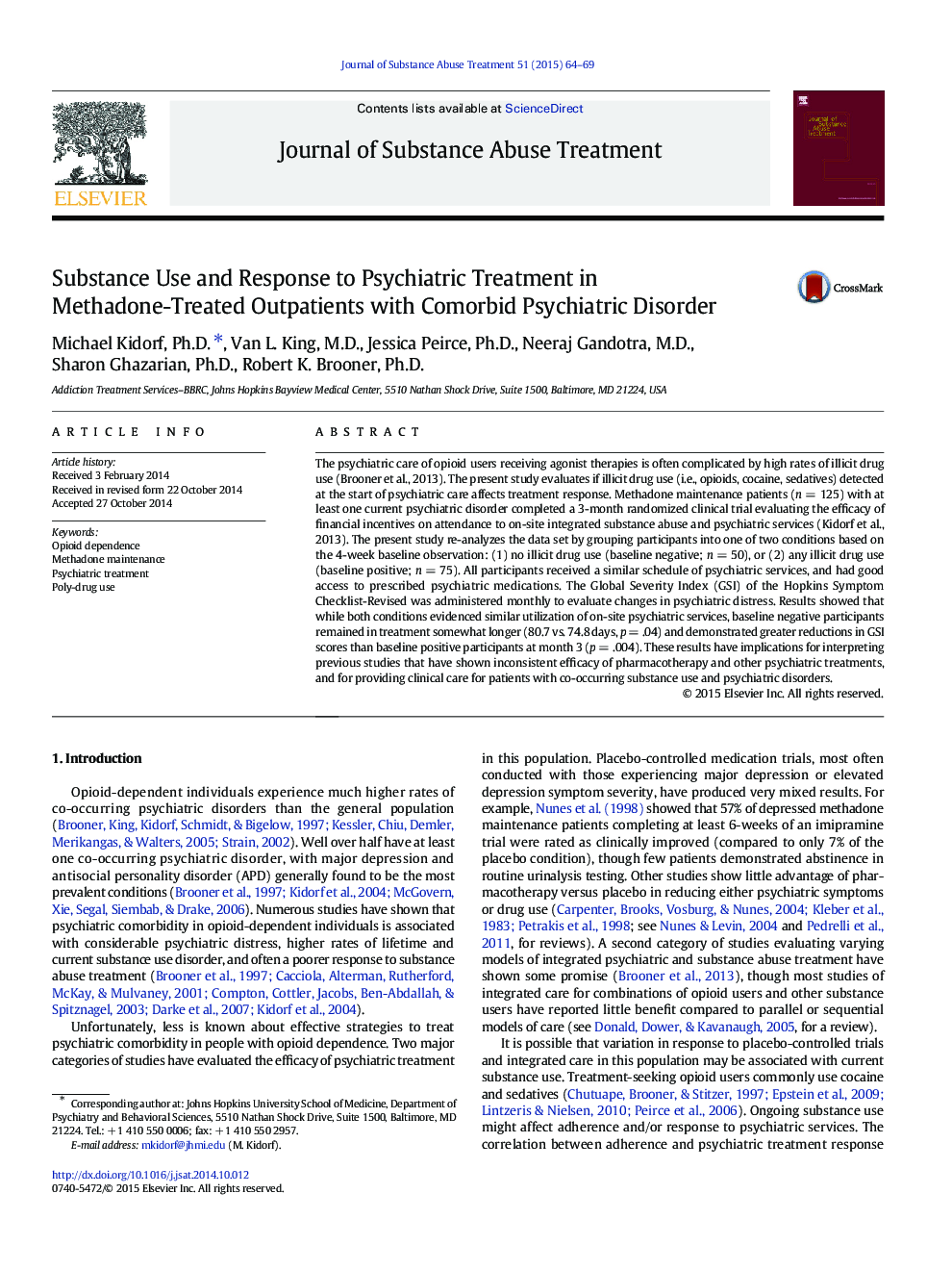| Article ID | Journal | Published Year | Pages | File Type |
|---|---|---|---|---|
| 6802598 | Journal of Substance Abuse Treatment | 2015 | 6 Pages |
Abstract
The psychiatric care of opioid users receiving agonist therapies is often complicated by high rates of illicit drug use (Brooner et al., 2013). The present study evaluates if illicit drug use (i.e., opioids, cocaine, sedatives) detected at the start of psychiatric care affects treatment response. Methadone maintenance patients (n = 125) with at least one current psychiatric disorder completed a 3-month randomized clinical trial evaluating the efficacy of financial incentives on attendance to on-site integrated substance abuse and psychiatric services (Kidorf et al., 2013). The present study re-analyzes the data set by grouping participants into one of two conditions based on the 4-week baseline observation: (1) no illicit drug use (baseline negative; n = 50), or (2) any illicit drug use (baseline positive; n = 75). All participants received a similar schedule of psychiatric services, and had good access to prescribed psychiatric medications. The Global Severity Index (GSI) of the Hopkins Symptom Checklist-Revised was administered monthly to evaluate changes in psychiatric distress. Results showed that while both conditions evidenced similar utilization of on-site psychiatric services, baseline negative participants remained in treatment somewhat longer (80.7 vs. 74.8 days, p = .04) and demonstrated greater reductions in GSI scores than baseline positive participants at month 3 (p = .004). These results have implications for interpreting previous studies that have shown inconsistent efficacy of pharmacotherapy and other psychiatric treatments, and for providing clinical care for patients with co-occurring substance use and psychiatric disorders.
Related Topics
Life Sciences
Neuroscience
Biological Psychiatry
Authors
Michael Ph.D., Van L. M.D., Jessica Ph.D., Neeraj M.D., Sharon Ph.D., Robert K. Ph.D.,
